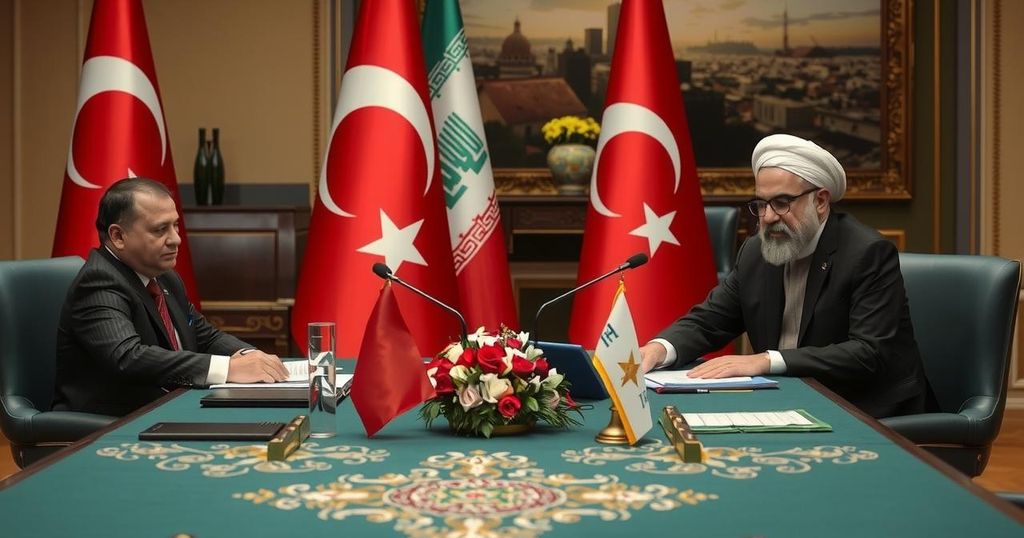At the D-8 summit in Cairo, Turkey and Iran called for unity in Syria post-Assad, while condemning Israeli actions in Gaza, Lebanon, and Syria. Leaders from both nations emphasized inclusivity for all Syrian factions in future governance. Additionally, discussions were held concerning the improving relations between Bangladesh and Pakistan, despite historical tensions. The D-8 aims to enhance cooperation among its diverse members.
At a summit of the Developing-8 (D-8) nations held in Cairo, the leaders of Turkey and Iran emphasized the necessity of unity in Syria following the removal of President Bashar al-Assad. Turkish President Recep Tayyip Erdogan advocated for reconciliation and the integrity of Syria, aspiring for a nation where diverse religious and ethnic communities can coexist peacefully. In addition, Iranian President Masoud Pezeshkian urged the inclusivity of all Syrian factions in the future government while denouncing Israel’s actions in the region, which have exacerbated suffering in Gaza, Lebanon, and Syria. The summit, attended by eight Muslim-majority countries, serves as a crucial platform to discuss regional issues and enhance cooperation amid ongoing conflicts. Also noteworthy was the meeting between the interim leader of Bangladesh, Muhammad Yunus, and Pakistan’s Prime Minister Shehbaz Sharif, indicating a potential thaw in bilateral relations despite historical tensions. The D-8, established in 1997, aims to facilitate collaboration among its members, which include Egypt, Turkey, Iran, Nigeria, Pakistan, Bangladesh, Indonesia, and Malaysia, spanning various geographical regions.
The D-8 Organisation for Economic Cooperation, commonly referred to as Developing-8, consists of eight member countries with a shared interest in fostering economic and cooperative partnerships. Established in 1997, the organization aims to promote mutual development among members, which belong to various regions, including Southeast Asia, the Middle East, and Africa. The recent summit held in Cairo provided a timely opportunity to address pressing regional conflicts and geopolitical tensions, particularly the ongoing crisis in Syria and the situation in Gaza and Lebanon. Turkey’s historical support for anti-Assad forces contrasts with Iran’s backing of the Assad regime, emphasizing the complexities of Middle Eastern geopolitics. The summit’s discussions reflect broader concerns regarding territorial integrity and peace within the region, alongside international responses to conflicts affecting member states.
The D-8 summit in Cairo highlighted the urgent need for unity and cooperation among Muslim-majority nations in addressing the multifaceted crises in Syria and the wider region. Calls for reconciliation in Syria, coupled with demands for accountability regarding Israeli actions, underscore the complex interplay of regional politics. Furthermore, the discussions regarding relations between Bangladesh and Pakistan may signal potential shifts in diplomatic ties. Overall, the gathering serves as a pivotal moment for collaborative efforts to foster stability and peace in areas beset by conflict.
Original Source: www.newarab.com






